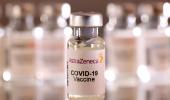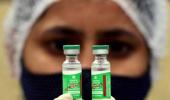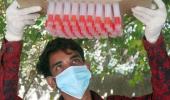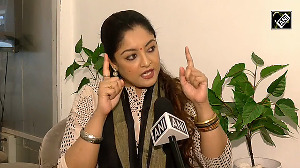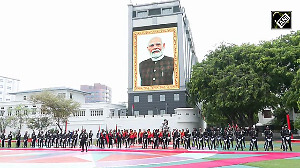India has covered enough population with vaccine and infection, but protein vaccines should remain available on payment basis for elderly and those with comorbidities.

Only 14 sites across the country are now conducting COVID-19 vaccination even as the Centre is yet to pull the plug on the drive.
Sources told Business Standard that no clear decision has been taken yet on closing down the vaccination drive.
"No clear decision on closure. Some vaccinations are taken by travellers with doses in states," said a senior government official.
India has 743 active Covid cases as on May 12, according to data on the Union health ministry Web site.
Some states have hospitalised Covid cases as well. For example, the media bulletin of the Integrated Disease Surveillance Program of the Public Health Department, Maharashtra, shows there were 41 active cases in the state as of May 11.
Of this, around 35 patients were in home isolation. Around six patients were hospitalised, of whom four were admitted to the ICU.

Does the country need to continue with the Covid vaccination drive?
Experts feel that a contingency stockpile of some vaccines should be maintained.
Dr Shahid Jameel, virologist and research fellow at Green Templeton College, University of Oxford, told Business Standard, "India has covered enough population with vaccine and infection, but protein vaccines should remain available on payment basis for elderly and those with comorbidities."
Dr Jameel clarified that even if the elderly have taken their three vaccine shots, these vaccines need to be available, but the government should not be required to make it free.

Major cities do not have vaccination centres running any more.
For example, Cowin shows that there are no vaccination centres available in Mumbai, or in New Delhi or Bengaluru urban or even Kolkata.
Thane, a neighbouring district of Mumbai, however, has one vaccination centre that is offering Biological E's Corbevax.


Corbevax is a protein subunit vaccine that was initially priced at Rs 800 per shot in the private market in March 2022. The Hyderabad-based company had sold the doses to the government for Rs 145 a dose at that time. The vaccine is now available for Rs 400 a shot.
This vaccine is also approved for use in children of the age of 12 to 14 years. It can be used as a mix and match booster after Covishiled (AstraZeneca-Serum Institute) or Covaxin (Bharat Biotech).
By January 2023, Bharat Biotech's nasal vaccine iNCOVACC was made available as a mix and match booster dose after Covishield and Covaxin. iNCOVACC was priced at Rs 800 a dose in the private market.
Pune-based Gennova Biopharma's mRNA (protein) vaccine GEMCOVAC -- OM targeted the Omicron variant of Sars-CoV-2 from June last year.
As of last December, the company had one million doses in stockpile.
If one tracks Cowin data, only 148 doses of Gemcovac-OM have been administered in all. Around 7,694 doses of Bharat Biotech's nasal vaccine iNCOVACC have been administered so far. Therefore, a stockpile of these vaccines is expected to be available, if needed.
In contrast, 54,932 doses of Serum's Covovax, 73.8 million doses of Corbevax and 1.2 million doses of Sputnik V have been administered. Moreover, 363 million doses of Covaxin and 1,740 million doses of Covishield have been administered so far.
Stockpiles of Covaxin and Covishield do not exist as the stocks have expired.

AstraZeneca has withdrawn its Covid vaccine and requested the European regulator to pull back its authorisation.
Serum said last fortnight, 'With India achieving high vaccination rates in 2021 and 2022, coupled with the emergence of new mutant variant strains, the demand for previous vaccines diminished significantly.
'Consequently, since December 2021, we have stopped the manufacturing and supply of additional doses of Covishield.'
A vaccine industry source said that the manufacturers were not gearing up to produce more doses because of two reasons.
One is the low or almost no demand for vaccines from either the private or the public sector.
Secondly, all these vaccines have emergency use authorisation (EUA) status that does not allow manufacturers to distribute them through pharmacies.
"One cannot release the vaccine onto the private market (through the pharmacy or other distribution channels) as they have EUA status," said the source.
"Vaccines have to be ordered either by the government or private centres registered with Co-WIN. So, unless orders are placed, no one can produce doses and create a stockpile," the source added.
Some new vaccines may be around the horizon though. Biological E, for example, has been working on a next-generation Covid vaccine that is based on the XBB1.5 variant of the SARS-CoV-2 virus. This would conform to WHO TAG-CO-VAC recommendations.
Its candidate vaccine has completed all the required pre-clinical animal studies, which suggests that it will provide adequate protection against the currently circulating variants.
Feature Presentation: Ashish Narsale/Rediff.com

